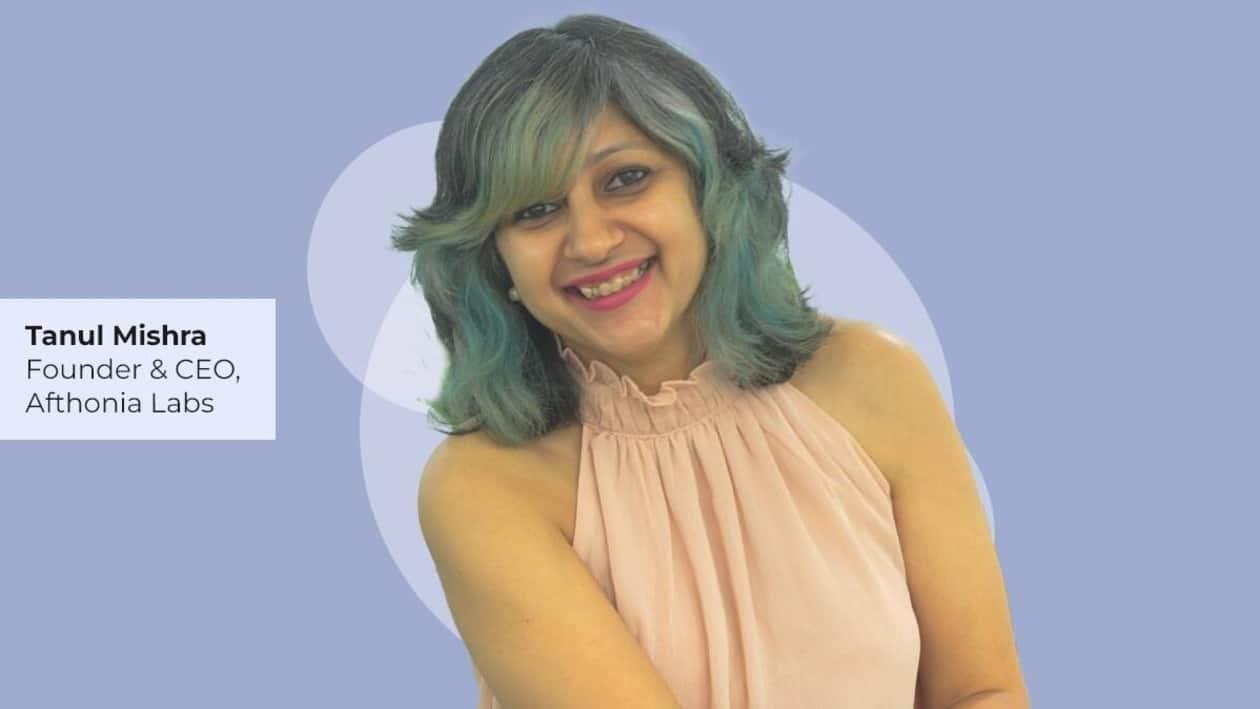While hundreds of thousands of youngsters want to try their luck in start-up space in India, not many are aware that behind every success story, there are failures of many more.
Throwing some light on this, Tanul Mishra, CEO of Afthonia Lab — an incubator of fintech start-ups — says in a telephonic interview with MintGenie that her firm got over 1,000 applications for incubation, and out of which mere 20 made it to the final selection.
Yes, only 20 — i.e., a 2 percent of the applicants. This means, for every two start-ups that were incubated by Afthonia, there were 98 that were turned down.
She takes us through her journey of starting Afthonia in 2019 and how this has unfolded in the past 3-4 years.
She refrains from glorifying the practice of dropping out of college to wear an entrepreneur's hat.Mishra also tells us that start-up is a serious business and it calls for deep commitment and drive to solve a problem, while money should be seen as a by-product and not the only outcome of this journey.
Edited Excerpts:
After having worked in the multiple sectors of marketing and communications, what motivated you to foray into the start-up space?
I have worked across sectors in the past including payment sector. I had done a start-up that I exited in 2018. I was thinking over what to do next. That was the time when I thought of starting a start-up ecosystem.
I realised that India had only 500 incubators during that time (in 2019) while US had 2,500 and China 1,500 plus. So, there was an urgent need to set up a structured support system for the start-ups in India.
How has been your investing journey so far in Afthonia Lab?
We work with a specific set of mentors and have invested in 20 plus start-ups, some of which are funded by our international partners.
When we invest, we take a percentage of these start-ups and when we exit, we stand to make money. So far, we have not exited any start-up so far.
There is adifference between accelerator and investor. Investors come at a later stage while we, as accelerator, come at the concept stage itself. We are a bridge between investors and start-ups.
So, both (investors and accelerators) are not competitors but complementary to each other.
Can you give a rough estimate of how many pitches are received by Afthonia Labs and how many finally get the funding?
We have different levels at which we judge before investing. The first level is to have a conversation between the founders and the experts we have.
Then at the second stage, I get involved. Different parameters that are considered before we take any decision include the idea, the theme they are fulfilling, and the founders are also important.
Then we do the business and tech evaluation of start-up. We have a panel of advisors, each of whom give a feedback on the start-up. It's only after all this that we enter the due diligence stage. Finally, the start-up gets onboarded.
Having done all this, it's still not foolproof.
What is your view about AI and ML and do you think India can play a vital role in its growth?
Any technology which is new needs to be used inherently if there is a use for it. Some portals such as Amazon use it so much but you don’t get to know about it. Technology is to be used intelligently without you knowing about it.
As far as India’s role in AI is concerned, we have a vast talent pool in technology and we will play our role.
What is your viewpoint of dropping out of college to open a start-up? Do you think that it is worth a risk?
I think the first question that they (founders) should be asking is why they want to be in the start-up business in the first place. There is a lot of blood, sweat and tear before you can take the start-up to any stage.
They should ask what problem are they trying to solve. They should be building something because they want to solve a problem, right?
And whatever they are going to solve will not happen in the blink of an eye. However, if money is their only incentive, then they would become really tired fast.
So, it is important to be aware of the grinds one goes through before one reaches the stage of being wealthy.
What is the ratio of start-ups you decided to incubate to the number of applications you received?
In the past three years, we have spoken to 1,000 founders and incubated only 20. This is not only because they were the only ones who were worthy but because it is only in these start-ups that we could add value.
Incubation is an involved journey and there should be a place for everyone (from accelerator's side) to add value.
Do you have any message for the youngsters who want to foray into the start-up space?
It is a great time to build businesses. But one should be mindful of the roller coaster ride. If you enjoy it, then you must do it. But one must remember that success does not come in one day.
